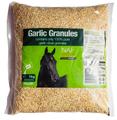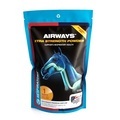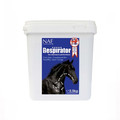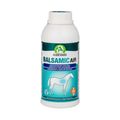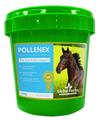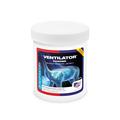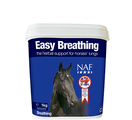Recurrent Airway Obstruction (RAO) is most often seen in horses during the winter months as an allergy to dust in their stables. However, it can present in some horses during the summer in a similar way to asthma in people.
The condition is characterized by airway narrowing and inflammation, as well as mucus production in response to allergens - these are usually pollens or moulds inhaled whilst horses are out in the field. It can occur at any age but is usually seen in horses over 9 years old.
Clinical signs include a cough, increased respiratory rate and effort, nasal discharge, exercise intolerance and flared nostrils. Your vet may be able to hear crackles and wheezes on auscultation of the lungs with a stethoscope. Owners may also notice a 'heave line' caused by the increased effort of breathing.
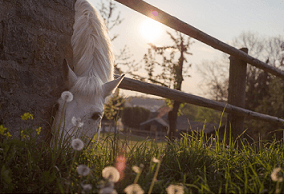 Diagnosis is usually based on clinical signs but a tracheal wash or broncho-alveolar lavage can be done to confirm the diagnosis. This involves passing a scope through the horse’s nose into the windpipe. Sterile saline is flushed into the airways and collected again. The presence of non-degenerate neutrophils (a type of white blood cell) in the sample confirms lower airway inflammation.
Diagnosis is usually based on clinical signs but a tracheal wash or broncho-alveolar lavage can be done to confirm the diagnosis. This involves passing a scope through the horse’s nose into the windpipe. Sterile saline is flushed into the airways and collected again. The presence of non-degenerate neutrophils (a type of white blood cell) in the sample confirms lower airway inflammation.
Good management is essential in the treatment and prevention of SPA-RAO. Affected horses should be kept in their stable during the spring and Summer months or when the pollen count is high. Hay should be soaked to reduce dust and feeding from the floor can help to expel excess mucus.
In more severe cases your vet may prescribe prescription medication such as Ventipulmin to open up the airways or steroids such as Equisolon to reduce inflammation. These drugs are given orally but in recurrent cases of SPA-RAO maintaining the horse on inhalers of the same type of drugs is effective. This ensures the drug is delivered directly into the respiratory tract where it is needed rather than systemically.
It is not uncommon for a horse to develop a secondary bacterial infection, for which your vet will prescribe antibiotics.
If you have any comments or questions for us, please post them below or email us directly: [email protected].
Written by: Dr. Sophie Meers BVSc MRCVS


